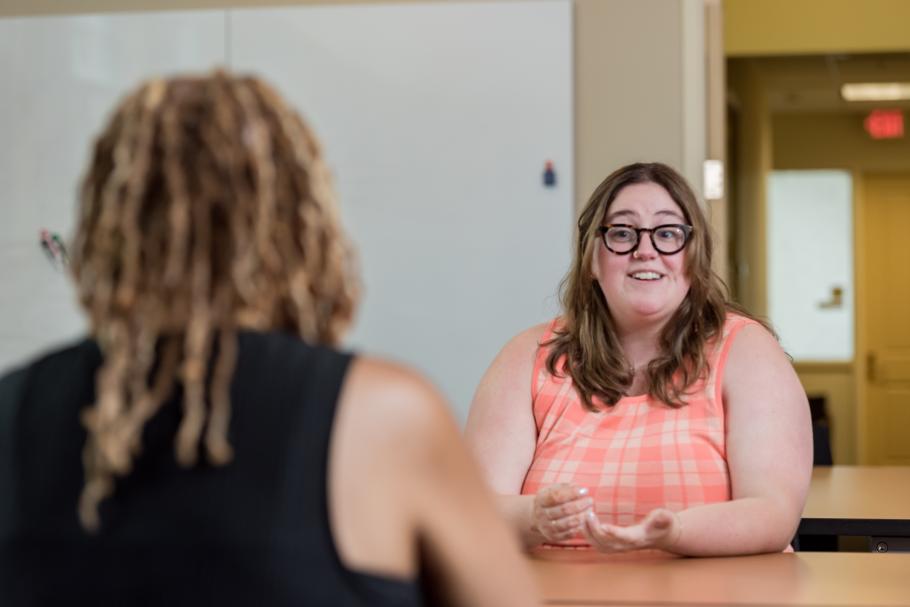
The Doctor of Philosophy in Social Work requires 105 quarter hour credits as well as successful completion of the oral and written clinical exams, comprehensive exam and dissertation to be eligible to graduate. Credits are required as:
- 69 quarter hours of core courses
- 30 quarter hours of clinical internship
- 6 quarter hours of research and dissertation
Core Courses
- First Summer Required Courses (10 courses, 24 quarter hours)
- 805 Intersectionality: Clinical Social Work with Historically Marginalized Populations, 811 Clinical Theories, 824: Qualitative Research and Inquiry II - Content Analysis and Thematic Analysis
- Second Summer Required Course (10 courses, 24 quarter hours)
- 837 Contemporary Trauma Theory and Practice, 852 The “Relational Turn” in Psychoanalysis: Emergence and Evolving Concepts in Social and Cultural Context, 848 Qualitative Research and Inquiry IV - Indigenous Methods and Discourse Analysis
- Third Summer Required Courses (10 courses, 21 quarter hours)
- 868 The Science of Clinical Practice for Social Workers, 832 Perspectives on Social Work Education: Supervision, Faculty Field Advising and Consultation, 878 - Capstone course: Integrating Psychoanalytic Theory, Research and Clinical Practice
In addition to classroom learning, two clinical internships, a research internship and dissertation are also required.
Clinical Comprehensive Examination
At the end of the first year internship, you will take the clinical qualifying examination, which has both written and oral components. In the written exam, you will be asked to analyze a published piece of work and discuss selected theoretical and practice issues within it. In the oral exam, you will prepare a clinical case presentation for a faculty panel that includes the faculty adviser, the clinical coordinator and an appointed faculty panelist.
Research Comprehensive Examination
During the research internship, you will complete a comprehensive examination. For the research comprehensive examination, you will develop a proposal in an area of your own interest under the mentorship of a research advisor. The examination takes the form of a publishable paper in a peer review journal, presenting a unique contribution to the profession that includes a conceptual or empirical study. The comprehensive exam is designed to move you toward the preparation of a dissertation proposal.
